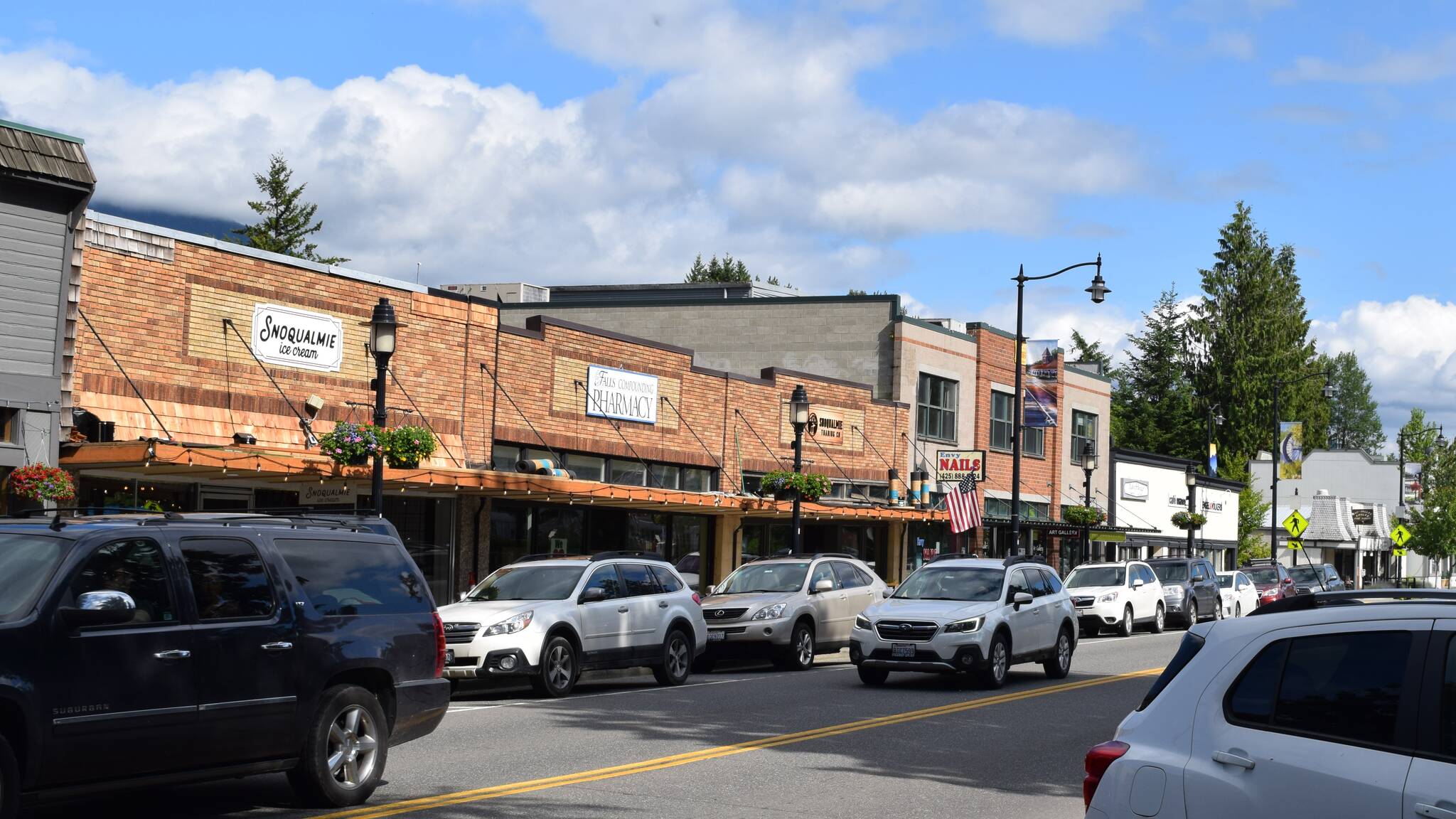A group of Snoqualmie business owners broke out in applause while sitting inside city council chambers on June 27, rejoicing as the city council approved the long-awaited — and much needed — distribution of grant funds to businesses that continue to face challenges caused by the pandemic.
Following almost a year of debate, the approval allows the city to finally distribute nearly $750,000 in federal funds over the next few weeks across 49 city businesses and nonprofits. The funding marks the first time in over two years that city businesses will receive federal COVID-19 relief dollars.
The new funds come from the $1.9 trillion American Rescue Plan Act (ARPA), passed in March 2021, which earmarked $350 billion in aid to be provided to state, local and tribal governments to be used to fight economic challenges caused by the pandemic.
ARPA awarded the City of Snoqualmie $1.9 million in funds back in June 2021, half of which the city designated for business and nonprofit grants.
The city asked businesses to submit applications the following October, resulting in a total request of $3.6 million. Since then, the council’s ARPA committee has been deciding how to equitably distribute those funds — a process some business and councilmembers described as months-long delay.
In a showing of unity, 10 business owners spoke to the city council ahead of its approval June 27, each sharing how inflation, gas prices, staffing shortages, supply chain backlogs, and other challenges have harmed their businesses over the last two years. They also expressed frustrations with the city for the long process, with several saying they were led to believe the funds would be made available in January.
When asked what happened between January and the approval June 27, Danna McCall, a city spokesperson, said ARPA distribution guidance from the U.S. Department of Treasury was only released in January, and only became effective on April 1.
“The City Council requested we establish a process for distributing this federal funding to ensure equity, which included hiring an ARPA coordinator, forming an ARPA council committee and establishing fair grant eligibility and scoring criteria,” Mayor Katherine Ross said through a spokesperson. “The end result is a program that supports the community while adhering to ARPA distribution guidance from the U.S. Department of Treasury.”
Dorie Ross, president of the downtown merchants association and co-owner of Chickadee Bakeshop, told the council that fellow business owners asked her for updates on ARPA on a weekly basis.
“For the city to come and say ‘please do this, please apply,’ and then we’re not getting anything back, it’s disheartening,” she said. “A lot of people have used their personal savings. A lot of people have used their retirement just to stay afloat.”
Ross said her business has been harmed dramatically by inflation, noting that some ingredients cost five to six times as much as they had before. She noted the price of a single egg has risen from 8 to 38 cents since she first started her bakeshop nearly two years ago. She also said her shop has had to pay drivers more due to rising gas prices and has spent more time driving around and triple-sourcing ingredients to compensate for supply chain shortages.
Ross told the Valley Record that many merchants in Snoqualmie both own and operate their business, and having to spend more time dealing with pandemic challenges detracts from their production and bottom line. She also stressed that many businesses’ needs have changed since submitting application in October.
Katie Podschwit, who co-owns Chickadee Bakeshop with Ross, said what was disheartening about the process was that they were told to hurry up and apply for the funds, but the date for when the money would be received kept getting pushed back.
Although Podschwit and Ross expressed frustration that the city didn’t seem to understand the diversity of need in the community, they acknowledged that the meeting June 27 was welcoming and didn’t feel like an “us against them” situation.
Podschwit said she is thankful the funds came through. The whole process and speaking at the meeting, she said, have brought the business owners closer together.
“It’s hard to share struggles,” she said. “You want to look like you have everything together. I’m proud of everything we did.”
Kelly Coughlin, executive director of the SnoValley Chamber, told the council that despite reports that local businesses are recovering and making more income, many are still “barely hanging on” due to rising costs elsewhere.
“It may look on paper that they’re doing well, but the cost of goods, transportation tax and all this other stuff has really put a huge bind on our business,” she said.
Coughlin told the Valley Record that despite the delay, she is thankful for the funds. She said the funds will have varying effects, with some businesses feeling a great relief, while for others it will have more of a softening effect.
Multiple council members were apologetic at the meeting. Councilmember Cara Christensen, a member of the city’s ARPA committee, said the city had been trying to get the funds out quickly. She acknowledged it was a challenge to prioritize and spend the money in a fair way.
Councilmember Ethan Benson made it a point to remind the owners that the money belongs to them and not the city.
“We didn’t generate this money. We have been put in position to distribute this money. We’re trying to do that as equitably as we can and I’m sorry we’ve taken so long,” he said. “I understand the pain you’ve gone through — we all do. We’re sorry for that, but you aren’t asking anybody for money. This is your money.”
The city received it second round of ARPA funding — another $1.9 million — on June 30. A city spokesperson said the council will continue discuss how to use those funds over the next several months.


